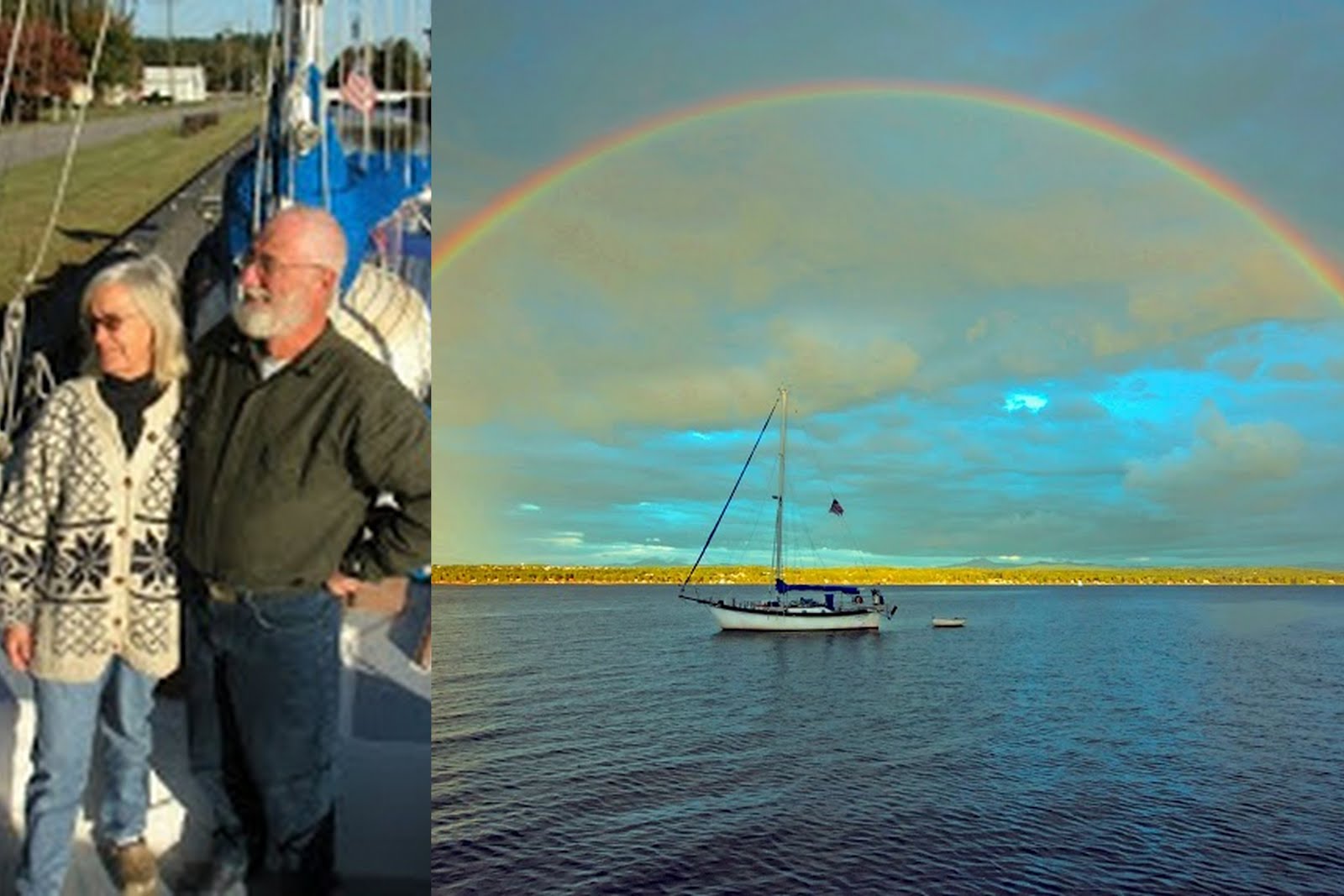At Sea: N25 11 W80 19
January 3, 2006
It's fun writing a blog while standing watch at night. It's these quiet
times that the mind relaxes and horizons expand.
This morning we gave over to nothing but fun. We couldn't get into Boca
Chica Key but on the GPS we could see a finder of deep water that could
get us close to one of the ragged keys. We threw caution to the wind
and took the chance. It was a feat that we never could have
accomplished without the GPS because the route in was narrow and twisty.
There were no channel markers or other aids to navigation so no other
form of navigation would have been precise enough to get us in. (Except
the time honored way of climbing the mast to look out for shallows from
above then navigating by depth.
Anyhow, we got there OK and we had the Key to ourselves. It was small,
perhaps 200 by 30 meters. It didn't have any coral or exotic fish. We
swam and snorkeled and walked on the beach. It was our first desert
island. It was hardly spectacular by any measure but it marked a
milestone in our cruising lifestyle.
I also got to scrub Tarwathie's bottom with a brush. Since last June
she had accumulated only a thin coat of slime that brushed right off.
There are hardly any barnacles either. That expensive bottom paint I
bought last June is working. I also dove down and scrubbed out the
little paddlewheel that makes our knotmeter (speedometer to landlubbers)
work. Not it works again. It got plugged up by a barnacle or
something in Fernandina Beach while we were waiting for the heater.
Until now the water was too cold for me to brave a swim. I'm chicken.
The water at the key wasn't really 79 degrees but rather 62 or so. I
could have stayed in the water for half an hour or so.
Around 1100 we left the key to set sail for our trip. According to the
weather report, the next 36 hours form the optimum window for our next
leg. We have to sail North, back up Biscayne bay to the channel, then
East out the channel, then South following the line of the keys. The
more South we go along the keys the more westward we have to turn. When
we get to our destination at Marathon tomorrow, we'll be sailing almost
due West. The winds are 10-15 knots from the West today turning
Northwest after midnight. That's perfect.
Right now its about 2030 and we've been sailing close hauled into the
wind since noon. Luck is with us because as we steer more to the West,
the wind is also veering slightly to the North. We've been on starboard
tack, doing 4.5 to 6.5 knots for the past 8 hours making only slight
occasional adjustments on the Monitor. Right now we're passing Key
Largo.
I find that listening to NPR talk programs and news is my link to the
contemporary world. Since we don't have TV and since we read
newspapers or surf the net only seldom, radio is our daily link. We can
get BBC news on the short wave radio, but that's only good for 15
minutes per day. I listen to NPR for 2-3 hours per day. When we leave
American shores I'll sorely miss it. I also feel guilty or dumb because
we still don't use the SSB radio for anything. I keep hearing other
sailors making reference to the calls to and from other sailors on the
cruising radio networks, but I still haven't learned what frequencies to
listen to at what times to tune in to them. One of these days I'll
learn. I really will.
We read an article in Soundings Magazine that really scared us. It was
about all the toxins and bacteria and stings and bites that one can get
in tropical waters and from eating the wrong fish. We have a lot to
learn about home remedies, and about species identification. For
example, the man in the article carried 1 quart of hydrogen peroxide per
crewman on his boat to get through a season. We don't have any
onboard. asWe'll also have to expect getting sick or suffering from
festering wounds from time to time. One can't live in paradise and
abstain from going into the sea or eating what comes out of the sea.
From Key Largo South the keys appear to be densely populated based on
the lights at night. Darn, there goes another paradise lost to
overpopulation. This world would be a paradise for up to one billion
people. No pollution worries, no crowding. How do we get from six
billion to one billion without advocating global thermonuclear war?





No comments:
Post a Comment
Type your comments here.
Note: Only a member of this blog may post a comment.